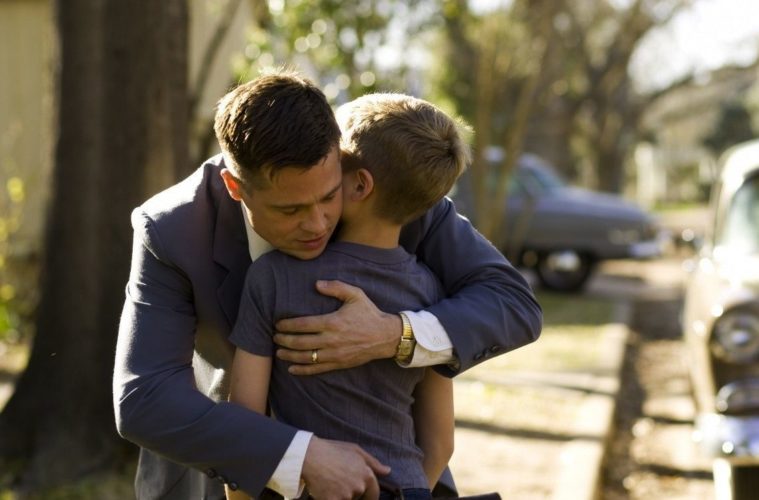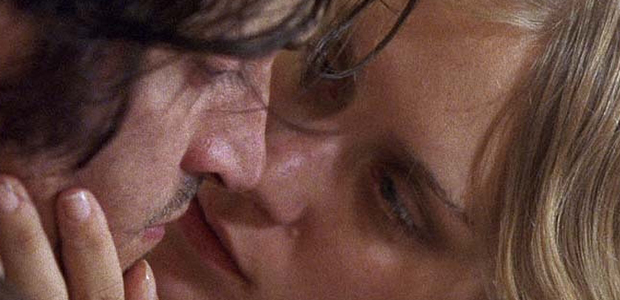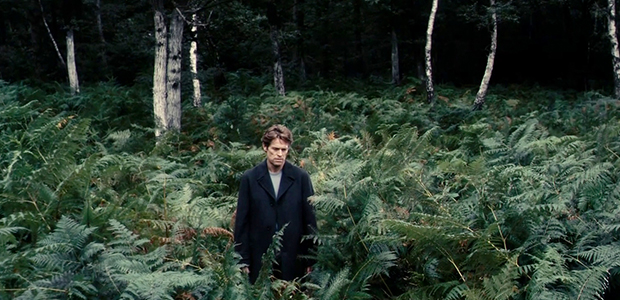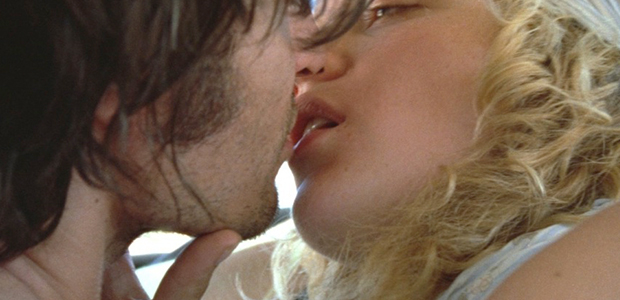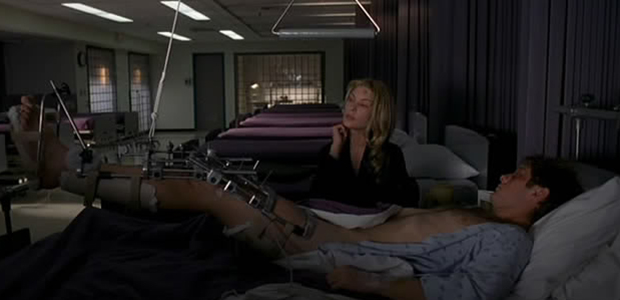This week, the Ryan Gosling-starring, Nicolas Winding Refn-directed Only God Forgives screened at the Cannes Film Festival and was swiftly met with critical division. While we took a slightly positive stance, immediate reports indicated that the film closed out with many boos and cackles from those in attendance. The response is sure to induce some trepidation on the part of the curious, but it’s known by now to not let the reception phase one too greatly. For those fearing that the boos and early criticism will throw you off, check out ten great flicks below that braved the taunts and were released to varying degrees of success.
Antichrist (Lars von Trier; 2009)
While I know many people don’t consider Antichrist to be a great film, I certainly do appreciate it. So, believe me: I can see why this Lars von Trier-directed vision of hell was not well-received upon initial viewing. But as it turns out, boos were the least of its problems at Cannes. A handful of people fainted at the premiere, and the film’s closing dedication to late Russian filmmaker Andrei Tarkovsky actually drew laughs from the audience. Ouch. But von Trier didn’t sweat it. At the Cannes press screening for Antichrist, von Trier labeled himself the “world’s greatest living filmmaker.” Leave it to the director of Manderlay to cast such humble praise.
The Brown Bunny (Vincent Gallo; 2003)
Perhaps the most notorious screening in the festival’s history, Vincent Gallo’s road movie was met with instant critical dread. The crowd booed loudly throughout, and many attendees who hadn’t walked out already felt compelled to during the film’s scene of unsimulated oral sex. Later, Roger Ebert famously called The Brown Bunny the worst movie ever screened at Cannes, likening the experience of watching Gallo’s film to receiving a colonoscopy. Gallo and Ebert engaged in a bitter battle of words, which resulted in Gallo recutting his film, and Ebert finally giving it a positive review. All’s well that end’s well.
Crash (David Cronenberg; 1996)
Just to reiterate: I’m certainly not surprised that many of the films on this list were booed at Cannes — I’m just drawing attention to the fact that they were booed. Case in point is David Cronenberg’s sex-and-car crashes psychosexual thriller, Crash. The movie is relentless in its vision and playfully self-aware of its intended effect. In fact, I wouldn’t be surprised if Cronenberg himself sat in the back of the theater with a little smirk on his face, silently musing, “Well, my work here is done.”
Gertrud (Carl Theodor Dreyer; 1964)
In hindsight, it’s actually kind of easy to see why Carl Theodor Dreyer’s final film, Gertrud, was met with an immediate negative vocal reaction. The film is a painfully (and purposefully) slow meditation on love found and love lost, and, apparently, the Cannes audiences weren’t having it. Either way, despite the film’s undesirable response (or is it because of it…?), the 75-year-old Dreyer reportedly had the stones to flip the audience off as they were booing. Might as well go down swinging.
L’Argent (Robert Bresson; 1983)
Some film historians presume that Robert Bresson’s final film, L’Argent, was booed because audiences had simply had enough of Bresson’s decisively understated style. Me? I’ll never grow tired of Bresson’s minimalist charm, but to each his own. Shame, though, that L’Argent — a rather remarkable film concerned with the ways in which forged money can ruin a man’s life — proved to be Bresson’s final film. Maybe he had run out of creative steam, maybe it’s because his age caught up with him, or maybe he’d simply had enough with the critical jeers.
L’Avventura (Michelangelo Antonioini; 1960)
Part of the fun of this list is calling out the naysayers who so wildly got it wrong, and, to that point, Michelangelo Antonioini’s glorious tale of improbable love is now considered one of the finest films ever made. Legend says, however, that after this landmark picture screened at Cannes, the director and his star, Monica Vitti, had to rush out of the theater due to the crowd’s divisive reaction. Immediate, unwarranted backlash in exchange for lasting status as a cinematic masterpiece? Sounds like a fair trade.
Taxi Driver (Martin Scorsese; 1976)
It’s funny to think about it now, but, sure enough, my favorite film of all time was booed at the Cannes Film Festival. Considering an actual bomb went off in the festival’s main theater the year before, though, I suppose it’s understandable that audiences didn’t want to see a PTSD-stricken war veteran take matters into his own hands for no apparent / logical reason. Either way, Taxi Driver won the Palme d’Or and will spend a lifetime enjoying cinematic prestige as a cultural milestone.
The Tree of Life (Terrence Malick; 2011)
The negative reaction to The Tree of Life at Cannes was the first time I ever got genuinely nervous about critical attention toward a film. In the month’s leading up to its release, I was desperately anticipating being transported back to the world of Terrence Malick. But when I finally saw Malick’s glorious visual poem, I realized two things: of course a movie like this could garner boos, and, more importantly, in no way should it matter.
Twin Peaks: Fire Walk With Me (David Lynch; 1992)
Usually Cannes attendees are polite enough to wait until a movie finishes before greeting it with boos. Twin Peaks: Fire Walk With Me was not so lucky. As reported at the time, David Lynch’s filmic follow-up to his wildly popular television series was met with constant boos during the screening. Walkouts were common as well, perhaps most notably by Quentin Tarantino himself, who later said, “David Lynch has disappeared so far up his own ass that I have no desire to see another David Lynch movie until I hear something different.”
The Voice of the Moon (Federico Fellini; 1990)
Federico Fellini’s final film, The Voice of the Moon, was (mostly) revered in its native Italy, thanks much in part to a starring performance by Roberto Benigni. But many North American critics didn’t buy it. Following its rather disastrous Cannes premiere (reportedly full of boos), several panned it harshly, accusing the film of being mind-numbingly dull. Sadly, the master filmmaker’s swan song never even saw a North American release.
Ten More Notable Films Booed at Cannes Film Festival
Eclipse by Michelangelo Antonioini (1962)
Mademoiselle by Tony Richardson (1966)
Seconds by John Frankenheimer (1966)
The Mother and the Whore by Jean Eustache (1973)
Under the Sun of Satan by Maurice Pialat (1987)
Wild at Heart by David Lynch (1990)
Pulp Fiction by Quentin Tarantino (1994) (note: this was not during the premiere, but rather when the film won the Palme d’Or)
The Idiots by Lars von Trier (1998)
Marie Antoinette by Sofia Coppola (2006)
We Own the Night by James Gray (2007)
What are you favorite films that were booed at Cannes? Did any deserve the response?

